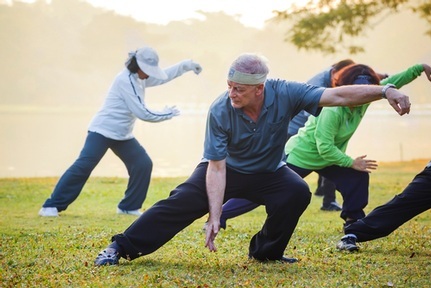Elderly should be exercising not resting, say doctors
Instead of resting, older people should be exercising and keeping physically active, according to doctors.

A report in the British Medical Journal has called for a change in the current thinking that exercise is only for the young.
Older people need to take responsibility for their health and cut down the need for social care by keeping fit, say doctors.
Scarlett McNally, an orthopaedic surgeon and lead author of the report, said: “Social care can be preventable because the risk of disease, disability, dementia and frailty can be reduced.
“We need individuals to understand how to get active every day and to help their friends and family to be active. We need national and local organisations to build activity and active travel into our environments and to demand improvements. The improvements are quick.”
The report argues that frailty, dementia and disability are not inevitable consequences of ageing and that regular exercise can actually make someone a decade younger in terms of their fitness levels.
Since exercise is so much more beneficial than medication, the NHS should ‘prescribe’ exercise, it added.
Enabling people to stay ‘above the line’ of being able to get to the toilet in time is critical, it says, as crossing this line can increase social care costs five-fold.
The lack of physical activity for hospital inpatients was singled out as a real problem with 80 per cent of their time spent in bed.
Anna Dixon, chief executive at the Centre for Ageing Better believes that physical activity that “maintains and improves muscle strength and ability to balance is crucial in reducing the risk of falling, potentially saving the NHS £1 billion from hip fractures”.
She added: “Falls account for 4 million hospital bed days every year. Physical activity is also critical to helping people live independently as they get older. Health professionals need to do more to support older adults to be physically active, including inpatients and those with long term conditions.”
The authors of the report are calling for changes to environments and in expectations to enable middle-aged and older people to become more active, including more open spaces and facilities such as cycle lanes.
Encouraging higher levels of physical activity among older adults could save billions in social care and NHS costs, the authors conclude.
Sir Muir Gray, one of the paper’s authors added: “The gap between the best possible level of ability and the actual rate of ability can be reduced at any age, no matter how many long-term conditions the person may have. The increase in the level of ability may not only restore the person to the ability they enjoyed ten years earlier, it may make the crucial difference between living well at home or being dependent on social care or residential care.”
The report ‘Focus on physical activity can help avoid unnecessary social care’ can be found at: http://www.bmj.com/content/359/bmj.j4609
Latest News
 29-Jul-24
Dementia Bus gives carehome.co.uk staff insight into life with dementia
29-Jul-24
Dementia Bus gives carehome.co.uk staff insight into life with dementia
 01-Mar-24
Find out the top care homes in 2024
01-Mar-24
Find out the top care homes in 2024
 21-Mar-23
UK's top care homes in 2023 revealed
21-Mar-23
UK's top care homes in 2023 revealed
 03-Jan-23
carehome.co.uk launches free care helpline
03-Jan-23
carehome.co.uk launches free care helpline
 13-Dec-22
5 mins with Emily Whitehurst, chief operating officer for Constantia Healthcare
13-Dec-22
5 mins with Emily Whitehurst, chief operating officer for Constantia Healthcare